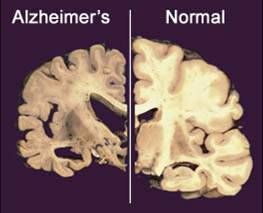Rep. Nick LaLota (R-NY) said that members of a Republican voting bloc united in increasing the cap on state and local tax deductions don’t want to change the corporate SALT deduction to pay for doing so.
That stance narrows the path for Republicans to find compromise on SALT, one of the major sticking points as they work to pass a major tax and spending bill.
Several members of the so-called SALT caucus huddled in House Speaker Mike Johnson’s (R-LA) office on Wednesday evening to negotiate an increase to the $10,000 SALT cap, which was first implemented as part of the 2017 Tax Cuts and Jobs Act. They want the cap to be raised to sufficiently satisfy constituents, but doing so is costly and most rank-and-file members oppose raising the cap at all.
The cost of raising the cap could be in the hundreds of billions over a decade, so some deficit hawks are at least hoping to see it offset by spending cuts or changes elsewhere in the tax code. But LaLota said after the meeting that members of the group don’t support changing the structure of C-SALT or B-SALT, which allows pass-through businesses to not be subject to the $10,000 cap, to pay for raising the individual cap.
LaLota said that C-SALT and B-SALT were briefly discussed during the meeting.
“And it is the preference of, I think, most if not all of the members of the SALT caucus that we don’t use B-SALT or C-SALT to pay for individuals,” he said in response to a question from the Washington Examiner.
He said, though, that such changes were not a red line.
“I’m not here to draw a red line right now — I want to be as practical as possible for as long as possible to make as many of my constituents as whole as possible,” LaLota added.
Corporations were never subject to the $10,000 cap that individuals were as part of the 2017 tax cuts. And pass-through entities like S-corps and LLCs have been allowed to use workarounds to avoid the $10,000 cap.
LaLota said he anticipates that members of the SALT-focused voting bloc will stick together as a united front as the tax negotiations continue.
“We do appreciate each other’s positions, our priorities, and each other’s constituents — I think we’re gonna stick together,” he said.
Lifting the SALT cap is only popular in high-tax blue states like New York and California, and the benefit largely benefits the wealthy.
A study from the Tax Policy Center found that only about 9% of households would benefit from a full repeal of the cap. Additionally, TPC found that more than 96% of the tax cut would go to the highest-income 20% of households.
It is still unknown where the final number for the cap will land, although Republicans are optimistic that a deal will be struck between the SALT caucus and the House Ways and Means Committee this week.
Nicole Malliotakis (R-NY), who is on Ways and Means, told reporters after the Wednesday meeting that there is “a general understanding of what the SALT caucus is looking to accomplish.” She said it is important to calculate how many constituents will be covered by the final number that emerges.
HERE ARE THE MAJOR DILEMMAS FACING THE GOP AS IT WRITES TAX OVERHAUL
The SALT caucus had previously rejected raising the cap to $25,000 as too low, and Malliotakis said that the target is still higher than that.
“$25,000 is not going to cut it,” she said, although she didn’t get into specifics beyond that.

















